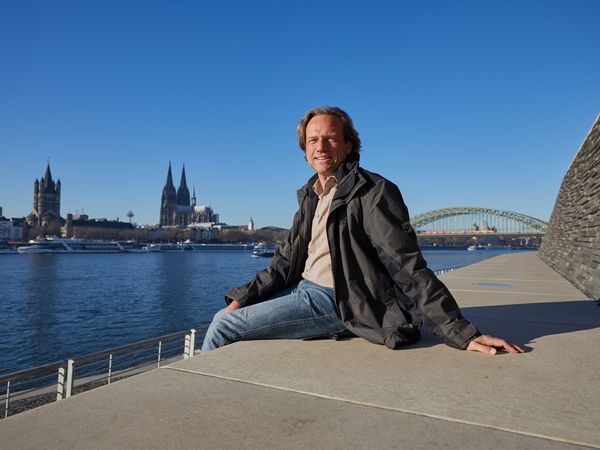CCB: ‘Alles im Fluss – Lebensader Wasser’ (All in flux – water as a lifeline) is the title of the 2017 theme year of the Cologne Science Round Table, of which you are the scientific mentor. What is the idea behind it?
Prof. Dr. Ribbe: Water is the basis of all life. That is why we have to deal with this topic scientifically – for example, with the question of how much water there is in a region, what quality it is and how it is available for agriculture, industry, domestic supply and nature. During the theme year, we will present various Cologne initiatives in lectures and exhibitions. In addition, the people of Cologne will be able to take part in excursions and thus gain insights into research. We are also organising a specialist conference on ‘Water Security and Climate Change’ with scientists from around the world via the ITT.
You are the director of the ITT. What exactly do you deal with?
The ITT researches natural resources as the basis for social and economic development. Our goal is to provide political and economic decision-makers with the information, knowledge and tools they need to manage resources sustainably. In Vietnam, for example, we are investigating the salination of rivers. The heavy use of water resources means that rivers carry less water. At the same time, the sea level is rising. This causes salt water to enter the rivers. This process leads to major problems, including in agriculture – not only in Vietnam, but in many areas worldwide. We have researched how to prevent salt water intrusion through technical measures and better water resource management.
So a course of study in Cologne contributes to a better management of water in the world?
Yes, at the ITT we provide knowledge in three master's programmes that is applied in many regions of the world. Two-thirds of our students come from abroad. Intercultural exchange is of considerable advantage because it brings everyday experience from many different regions to Cologne. Conversely, our German students have the opportunity to get to know at least one of our international partner universities and to be on site for their master's thesis.
In the Cologne Science Round Table, Cologne universities and non-university research institutions work together. An interdisciplinary approach is also crucial for your research. Why is that?
Resource management is a complex topic. We need to understand natural and social systems in order to find solutions to existing problems. To do this, natural, engineering and social sciences are equally relevant. A single institution can never provide all the knowledge needed to adequately address these challenges. That is why we work with many institutions in the Cologne area, in Germany, but also internationally. At the same time, we need local partners who are familiar with the problems and can later implement the solutions; we involve them from the beginning of the research to the final result.
You have been researching water management for over 15 years. Can you tell us your favourite ‘watering hole’ in Cologne?
My favourite watering hole is right on the Rhine, opposite Cologne Cathedral. In addition to the beautiful view of our city, you can also see how the built and natural environments interact – sometimes in a conflictual way. However, this area with the flight of steps is a fine example of how water and city can be in harmony with each other.
